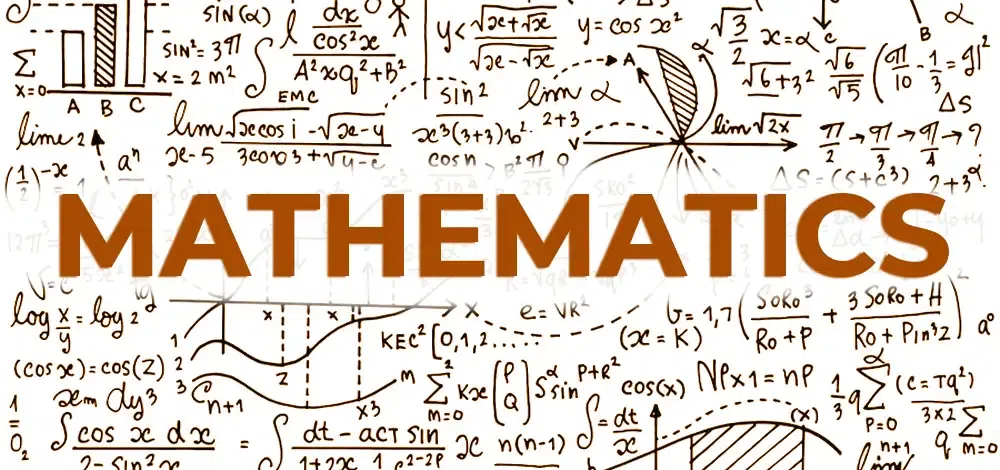
JAKARTA, inca.ac.id – Mathematical concepts form the backbone of many academic disciplines, particularly in science, technology, engineering, and mathematics (STEM). As students transition into university, establishing a strong foundation in these concepts is crucial for their academic success and future career prospects. This article discusses the significance of mathematical concepts in higher education, the key areas students should focus on, and effective strategies for building a solid mathematical foundation from day one.
Understanding Mathematical Concepts

1. Defining Mathematical Concepts
Mathematical concepts encompass a wide range of ideas and principles that form the basis of mathematical reasoning. These include fundamental topics such as algebra, calculus, geometry, statistics, and discrete mathematics. Mastery of these concepts enables students to solve problems, analyze data, and apply mathematical reasoning in various contexts.
2. The Importance of Mathematical Concepts in University
Mastering mathematical concepts is essential for several reasons:
- Critical Thinking: Mathematics fosters critical thinking and problem-solving skills, which are vital in both academic and real-world situations.
- Interdisciplinary Applications: Many fields, including economics, psychology, and social sciences, rely on mathematical concepts for data analysis and modeling.
- Foundation for Advanced Studies: A solid understanding of mathematical concepts is necessary for success in advanced courses, particularly in STEM disciplines.
- Career Opportunities: Proficiency in mathematics opens doors to a wide range of career opportunities in fields such as engineering, finance, data science, and research.
Key Mathematical Concepts to Master
To build a strong foundation in mathematics, students should focus on several key concepts:
1. Algebra
Algebra is the study of mathematical symbols and the rules for manipulating these symbols. Key topics include:
- Variables and Expressions: Understanding how to use variables to represent numbers and create expressions.
- Equations and Inequalities: Solving linear equations and inequalities, and understanding their graphical representations.
- Functions: Grasping the concept of functions, including linear, quadratic, and exponential functions, and their applications.
2. Calculus
Calculus is the study of change and motion. Important concepts include:
- Limits: Understanding the concept of limits and their role in calculus.
- Derivatives: Learning how to calculate and interpret derivatives, which represent rates of change.
- Integrals: Understanding integrals as the accumulation of quantities and their applications in various contexts.
3. Geometry
Geometry focuses on the properties and relationships of shapes and spaces. Key areas include:
- Euclidean Geometry: Studying points, lines, angles, and shapes in two and three dimensions.
- Coordinate Geometry: Understanding the relationship between algebra and geometry through the use of coordinates.
- Trigonometry: Exploring the relationships between angles and sides of triangles, and applying these concepts to real-world problems.
4. Statistics and Probability
Statistics and probability involve the collection, analysis, interpretation, and presentation of data. Key concepts include:
- Descriptive Statistics: Learning how to summarize and describe data using measures such as mean, median, and standard deviation.
- Inferential Statistics: Understanding how to make predictions and inferences about populations based on sample data.
- Probability Theory: Exploring the principles of probability and their applications in various fields.
5. Discrete Mathematics
Discrete mathematics deals with countable, distinct objects and is crucial for computer science and information technology. Key topics include:
- Set Theory: Understanding the basics of sets, subsets, and set operations.
- Graph Theory: Exploring the properties of graphs and their applications in networks and algorithms.
- Combinatorics: Studying counting, arrangement, and combination of objects.
Strategies for Building a Strong Mathematical Foundation
To effectively master mathematical concepts from day one, students can employ several strategies:
1. Active Participation in Classes
Experience
Engaging actively in lectures and discussions enhances understanding and retention of mathematical concepts.
Strategies Implemented
- Ask Questions: Don’t hesitate to ask questions during class to clarify doubts and deepen understanding.
- Collaborate with Peers: Form study groups to discuss challenging concepts and solve problems collaboratively.
2. Utilize Resources Effectively
Experience
Leveraging available resources can significantly enhance learning outcomes.
Strategies Implemented
- Textbooks and Online Materials: Use textbooks, online courses, and video tutorials to reinforce learning and explore concepts in depth.
- Tutoring Services: Take advantage of tutoring services offered by the university for additional support in challenging areas.
3. Practice Regularly
Experience
Regular practice is essential for mastering mathematical concepts and developing problem-solving skills.
Strategies Implemented
- Work on Exercises: Complete exercises and problems from textbooks and online resources to reinforce understanding.
- Take Practice Tests: Regularly take practice tests to assess understanding and improve test-taking skills.
4. Connect Concepts to Real-World Applications
Experience
Understanding how mathematical concepts apply to real-world situations enhances motivation and engagement.
Strategies Implemented
- Case Studies: Explore case studies that illustrate the application of mathematical concepts in various fields.
- Projects: Engage in projects that require the application of mathematical concepts, such as data analysis or modeling.
5. Develop a Growth Mindset
Experience
Cultivating a growth mindset encourages resilience and a positive attitude toward learning.
Strategies Implemented
- Embrace Challenges: View challenges as opportunities for growth rather than obstacles.
- Reflect on Progress: Regularly reflect on progress and celebrate achievements, no matter how small.
Conclusion
Mastering mathematical concepts is essential for success in university and beyond. By focusing on key areas such as algebra, calculus, geometry, statistics, and discrete mathematics, students can build a strong foundation that supports their academic and professional aspirations.
Through active participation, effective resource utilization, regular practice, real-world applications, and a growth mindset, students can approach their mathematical education with confidence and enthusiasm. As they lay the groundwork for their future studies, a solid understanding of mathematical concepts will empower them to tackle complex problems and excel in their chosen fields.
Improve Your Abilities: Explore Our content on Knowledge
Take a Look at Our Latest Article on Creative Expression!
#Academic Success #mathematical concepts #student experience #Study Tips #university math







